
The New York Association of Black Psychologists (NYABPsi), in collaboration with the New Jersey (NJABPsi), DC (DCABPsi), and Delaware Valley (DVABPsi) chapters, is celebrating Black History Month by highlighting and honoring the pioneers of Black and African Psychology. We proudly recognize the contributions of Black psychological scholars, theorists, practitioners, and researchers who created and molded the field. They as exemplars of Black Excellence! They made major contributions to practice, theory, or research and reshaped dominant discourses within psychology regarding the plight of African-descended people and their individual, familial, and social experiences. They prioritized the Black experience, highlighted the need for equity, and set the stage for those who follow in their footsteps. Society and the field would not be the same without their contributions. We encourage you to share the legacy of these pioneers with your friends, loved ones, students, and the larger community.
Pioneers
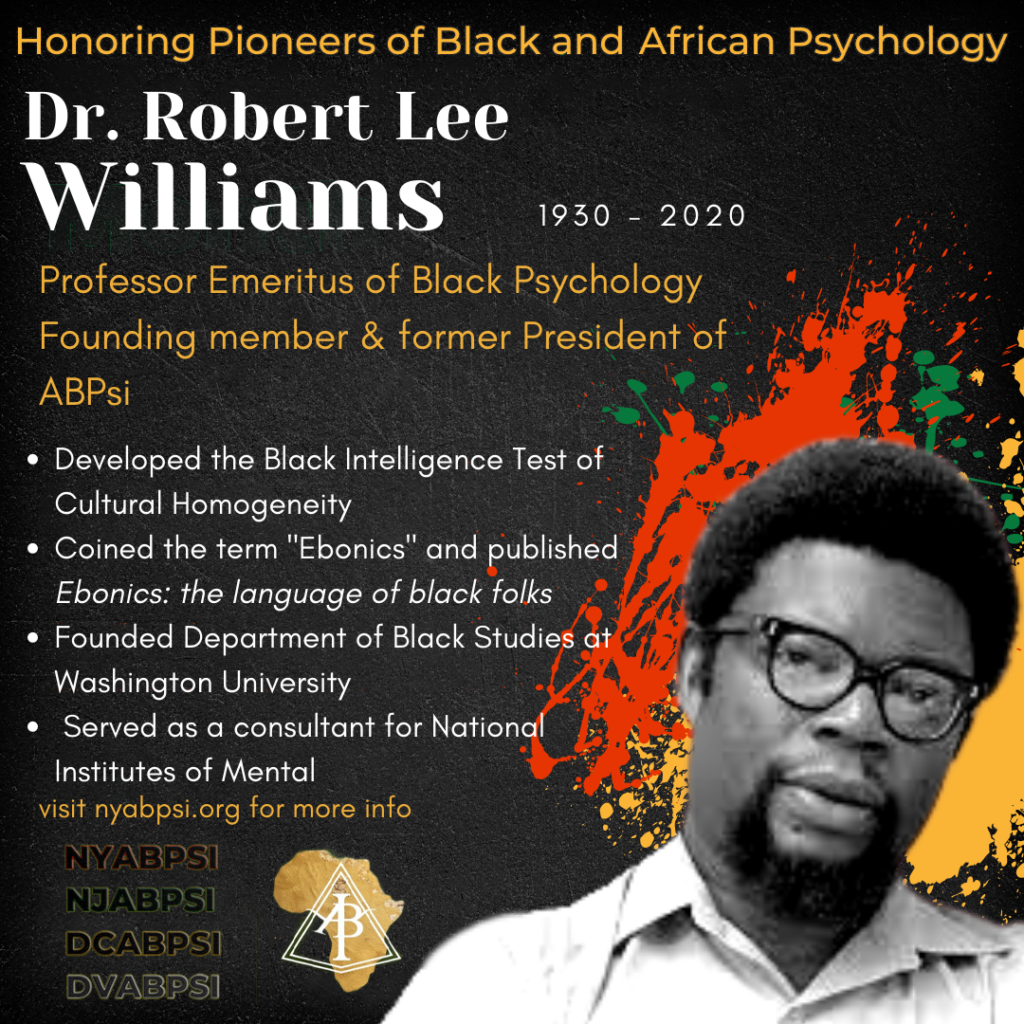
Dr. Robert Lee Williams was born on February 20, 1930, in Biscoe, Arkansas, and transitioned on August 12, 2020.
A founding member of ABPSI, he believed the focus of Black psychology was to “be about the business of setting forth new definitions, conceptual models, test theories, normative behavior, all of which must come from the heart of the Black experience”.
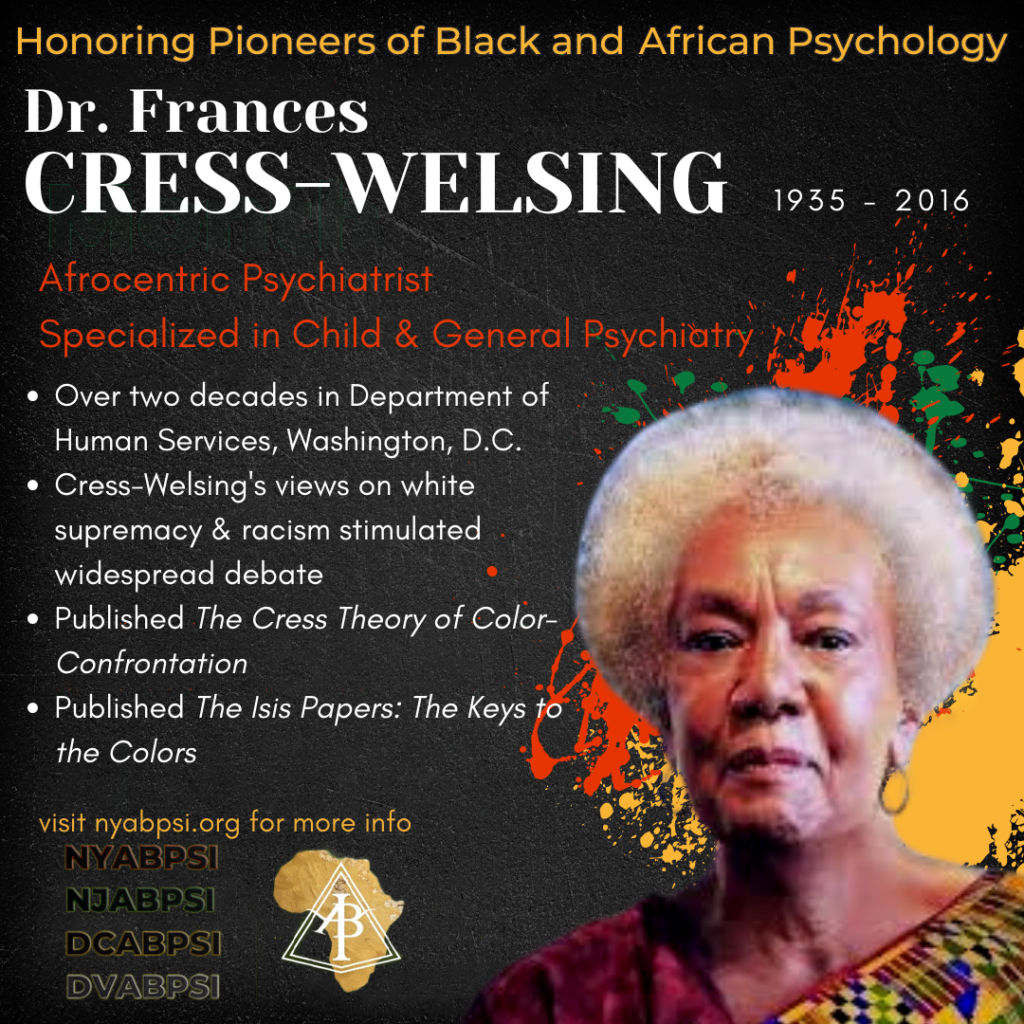
Dr. Frances Cress-Welsing was born March 18, 1935, in Chicago, IL. She died on January 2, 2016, in Washington, D.C. The second of three girls, Welsing was born into a family that had already produced two doctors. She received her Bachelor’s of Science from Antioch College in Ohio in 1957 and her medical degree (M.D.) from Howard University in 1962.
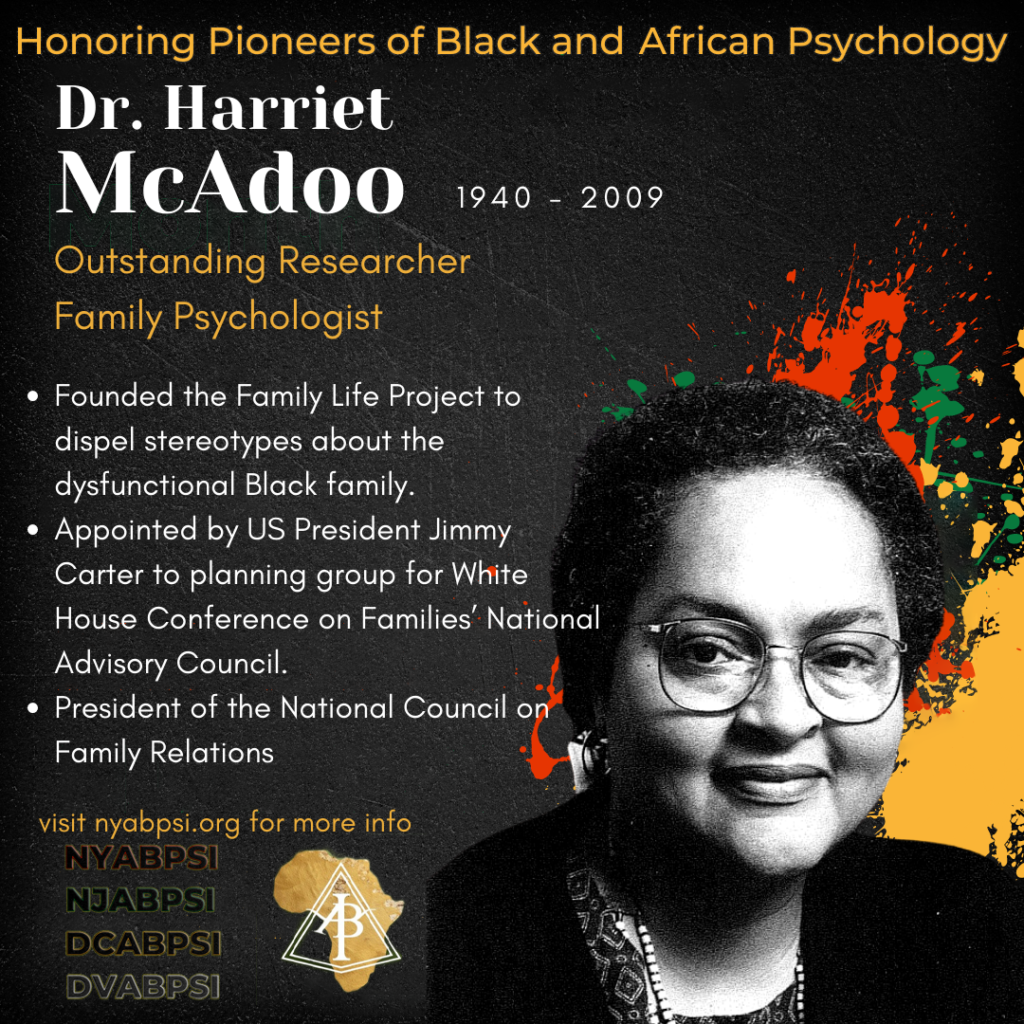
Born March 15, 1940, in Fort Valley, Georgia. Died December 21, 2009. McAdoo grew up mostly in Little Rock, Arkansas, but her family moved to East Lansing, Michigan, when she was a teenager, and she finished high school there. She earned her undergraduate degree (1961) and a Ph.D. (1970) in educational psychology at Michigan University.
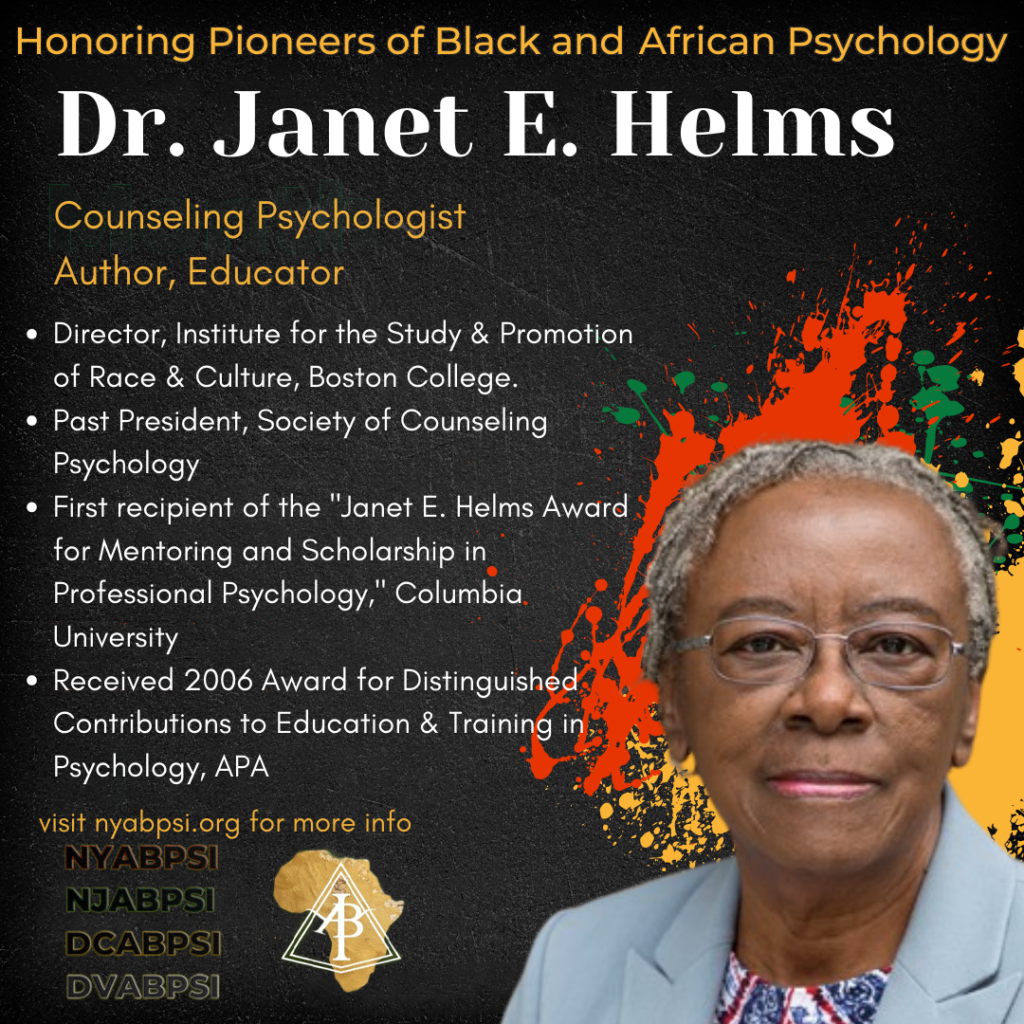
Janet E. Helms, born in Kansas City, Missouri, is a Counseling Psychologist, recognized scholar, author and educator, well known for her racial identity theory that is applied to multiple disciplines, including education and law. She was a recipient of the Association of Black Psychologists’ 2007 Award for Distinguished Psychologist.
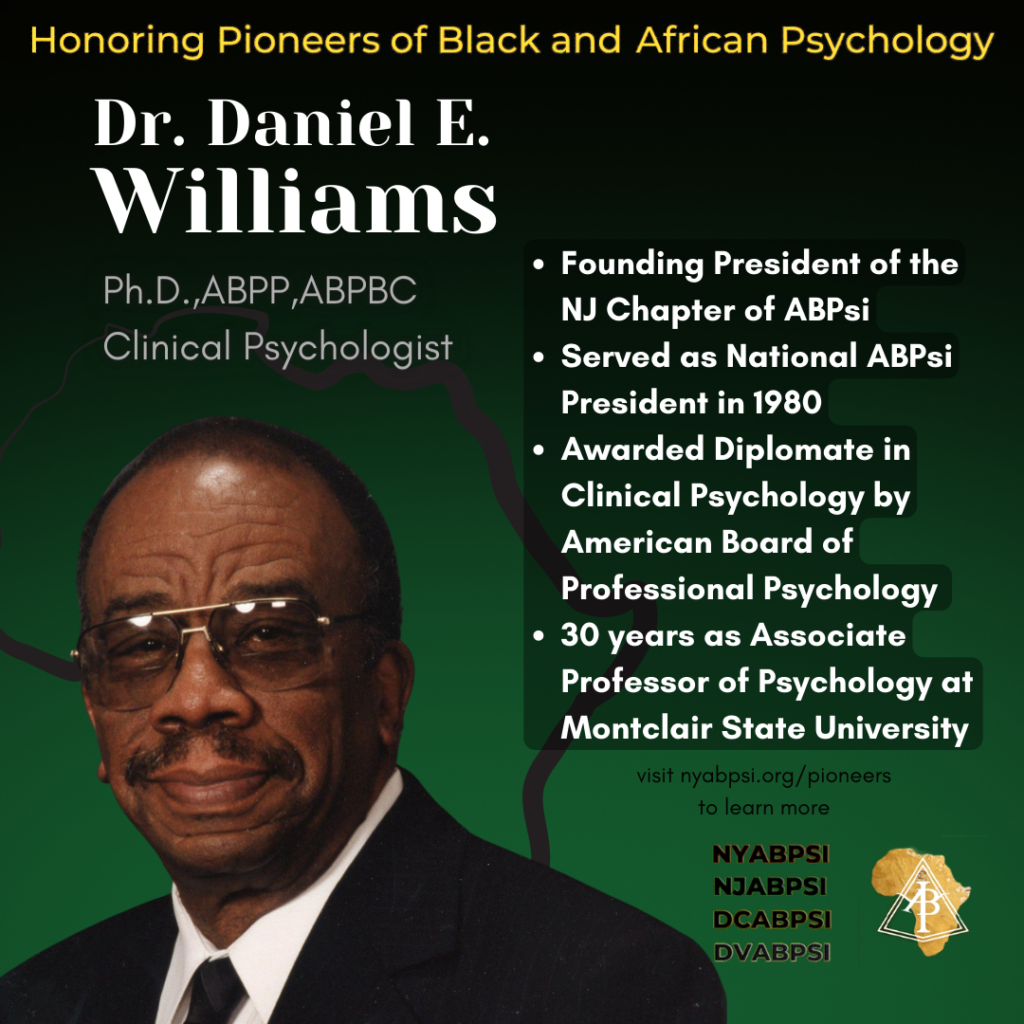
As a past National President of ABPsi and as Founding President of the NJ Chapter of ABPsi, Dr. Daniel E. Williams has been at the forefront of African/Black Psychological thought and healing practice. He appreciates the power of traditional African healing methods and in his writings on “Psychotherapy with Black Patients”, he teaches clinicians to help Black people to reconnect to their soul and to nurture their inner world.
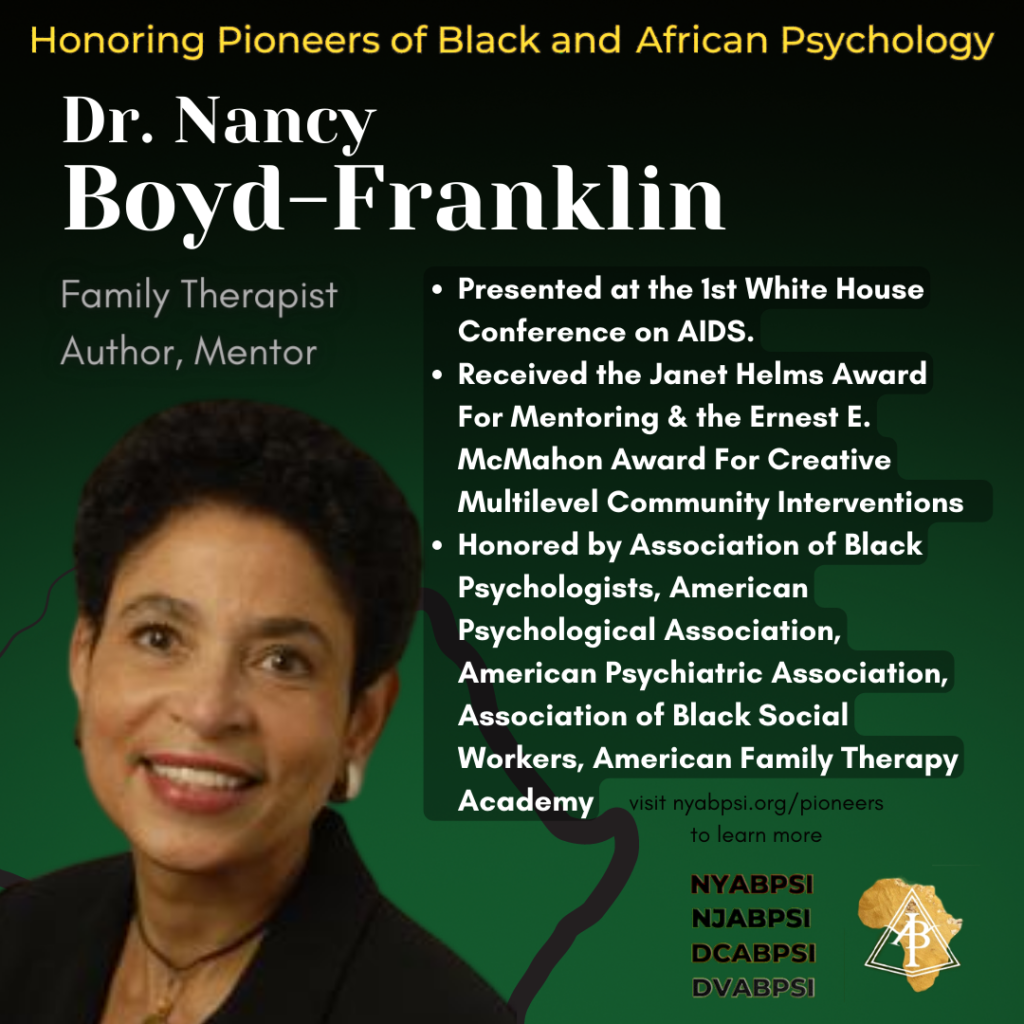
A clinician, Family Therapist, Mentor, Distinguished Professor, and Advocate, Dr. Boyd-Franklin has made significant contributions to the field of ethnicity, family, and couples therapy, and has authored many works in these areas. Some of her books include “Black Families In Therapy: A Multi-systems Approach” and “Boys Into Men: Raising Our African American Teenage Sons,” co-authored by her husband, Dr. A.J. Franklin.
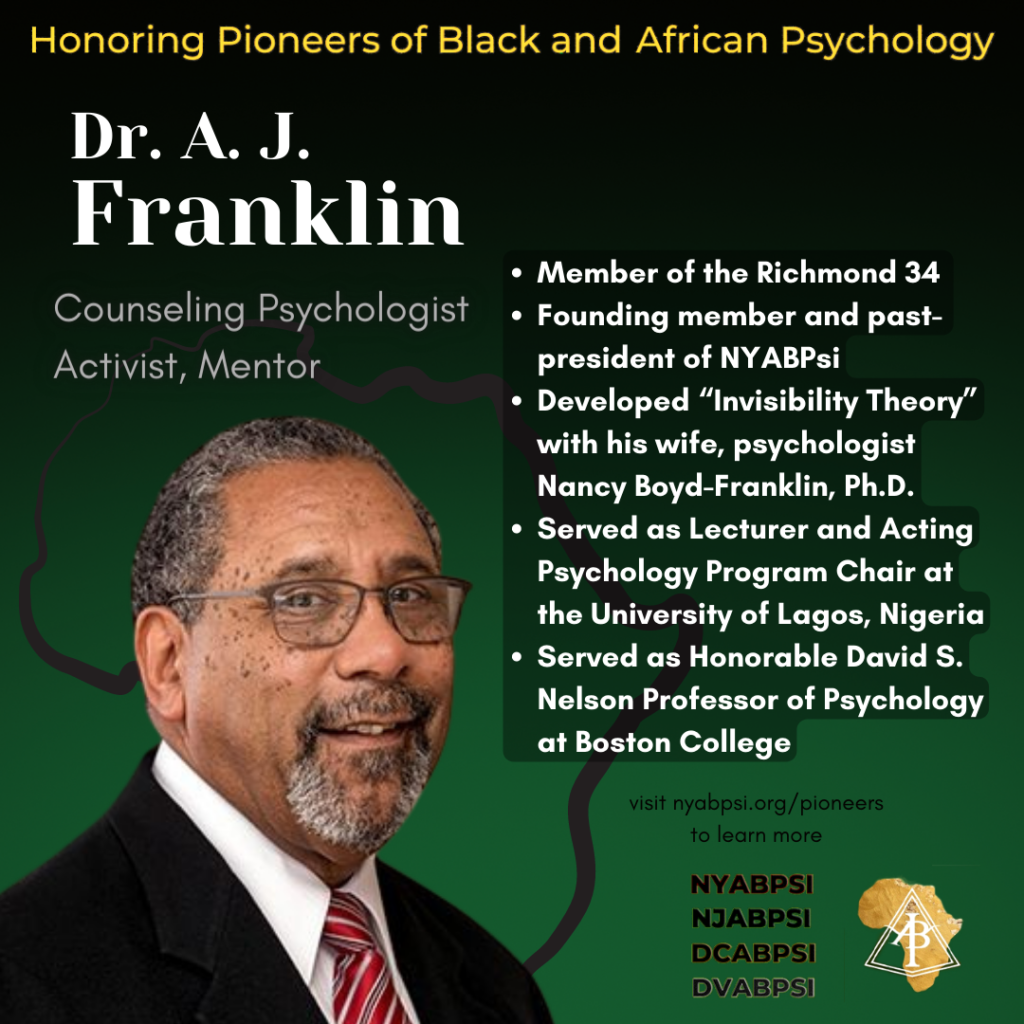
Dr. A.J Franklin, born in Brooklyn, NY, is a Counseling psychologist, educator, researcher, and community leader. He is known for his work on Black male masculinity, Black fatherhood, positive youth development, and community interventions. He is a founder of NYABsi. In 2019 he retired from a tenured chair and professor position in Boston College’s doctorate in counseling psychology.
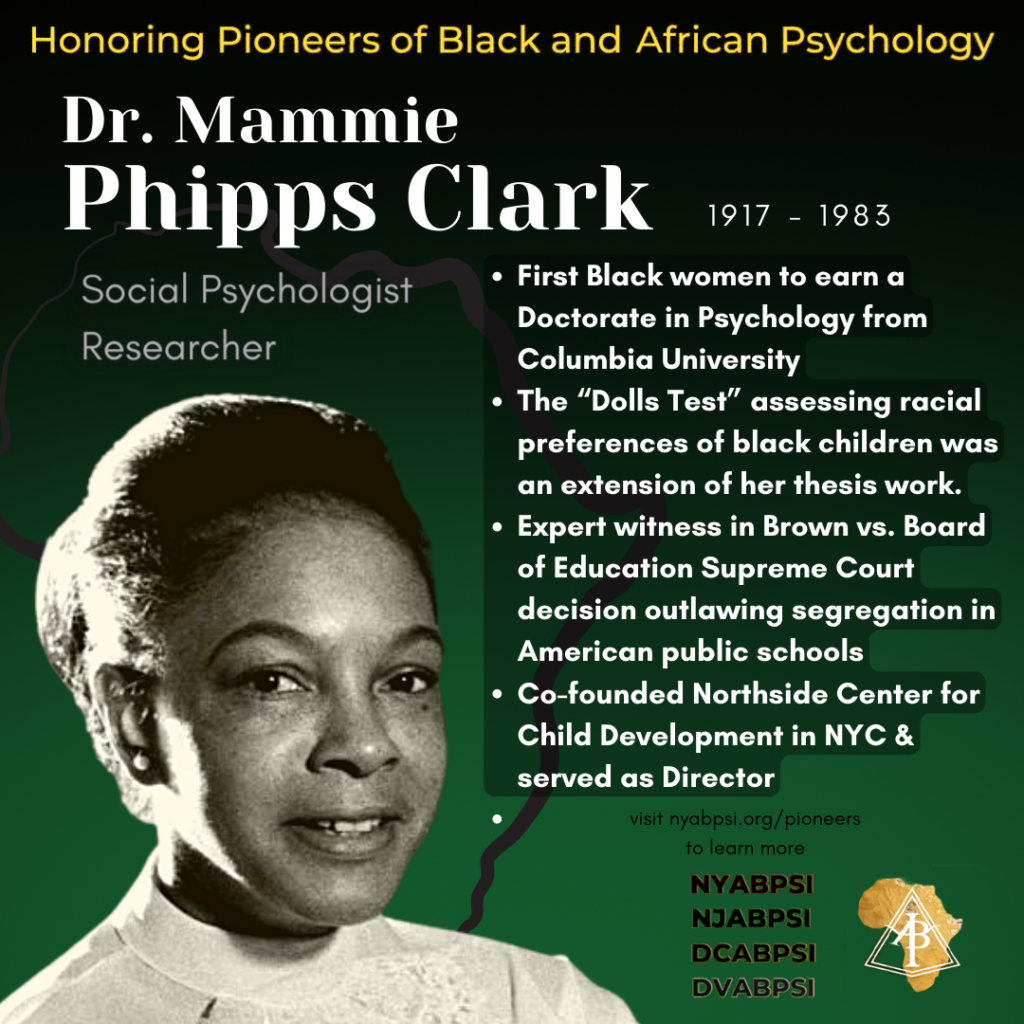
Dr. Mammie Phipps Clark was born April 18, 1917, in Hot Springs, Arkansas. She was the second African-American and first African- American woman to earn a Doctorate in Psychology from Columbia University, in 1943. She is perhaps best well-known for, along with her husband Dr. Kenneth B. Clark, conducting the famous “Doll Test”. She transitioned on August 11, 1983.
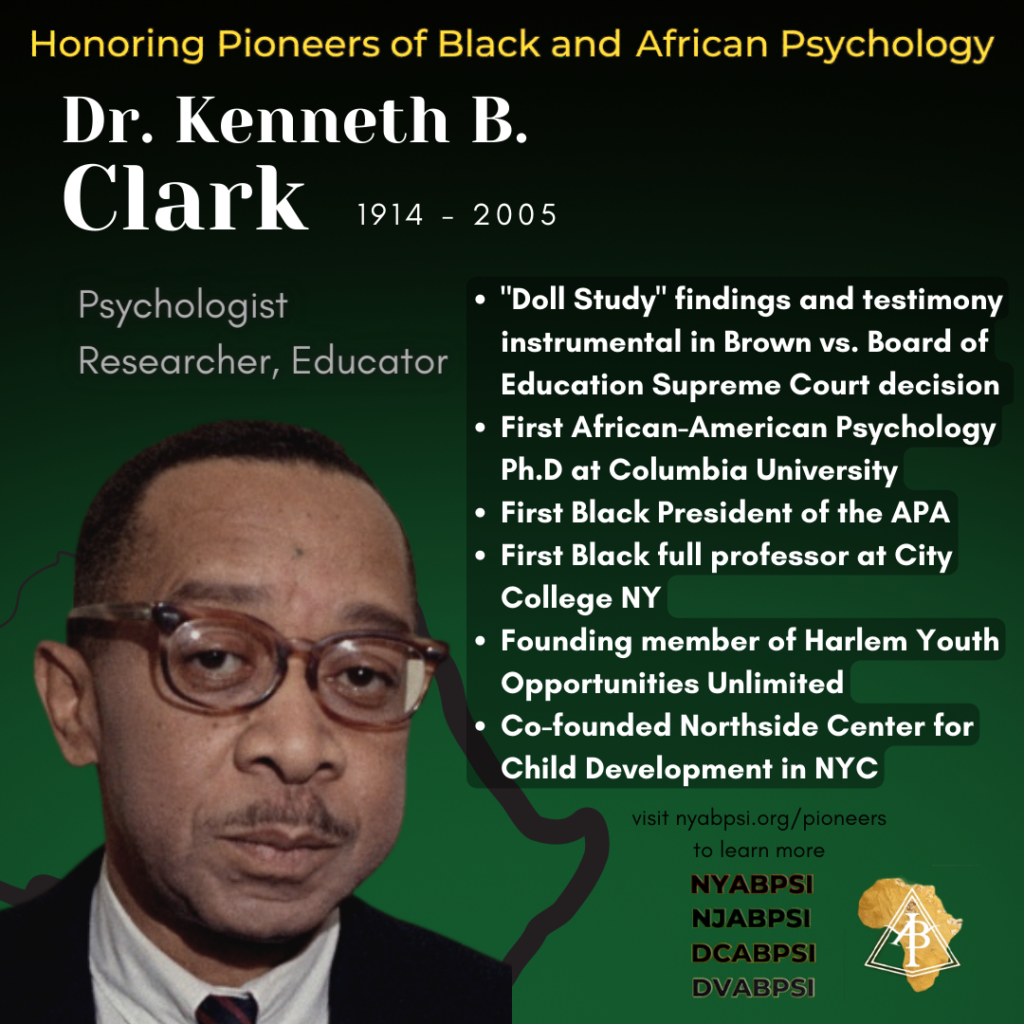
Dr. Kenneth B. Clark was born July 24, 1914 in the Panama Canal Zone. Dr. Clark was the first African- American to earn a Doctorate in Psychology from Columbia in 1940. He is famous for collaborating with his wife, Dr. Mammie Phipps Clark, for conducting the “Doll Test”. He transitioned May 1, 2005.
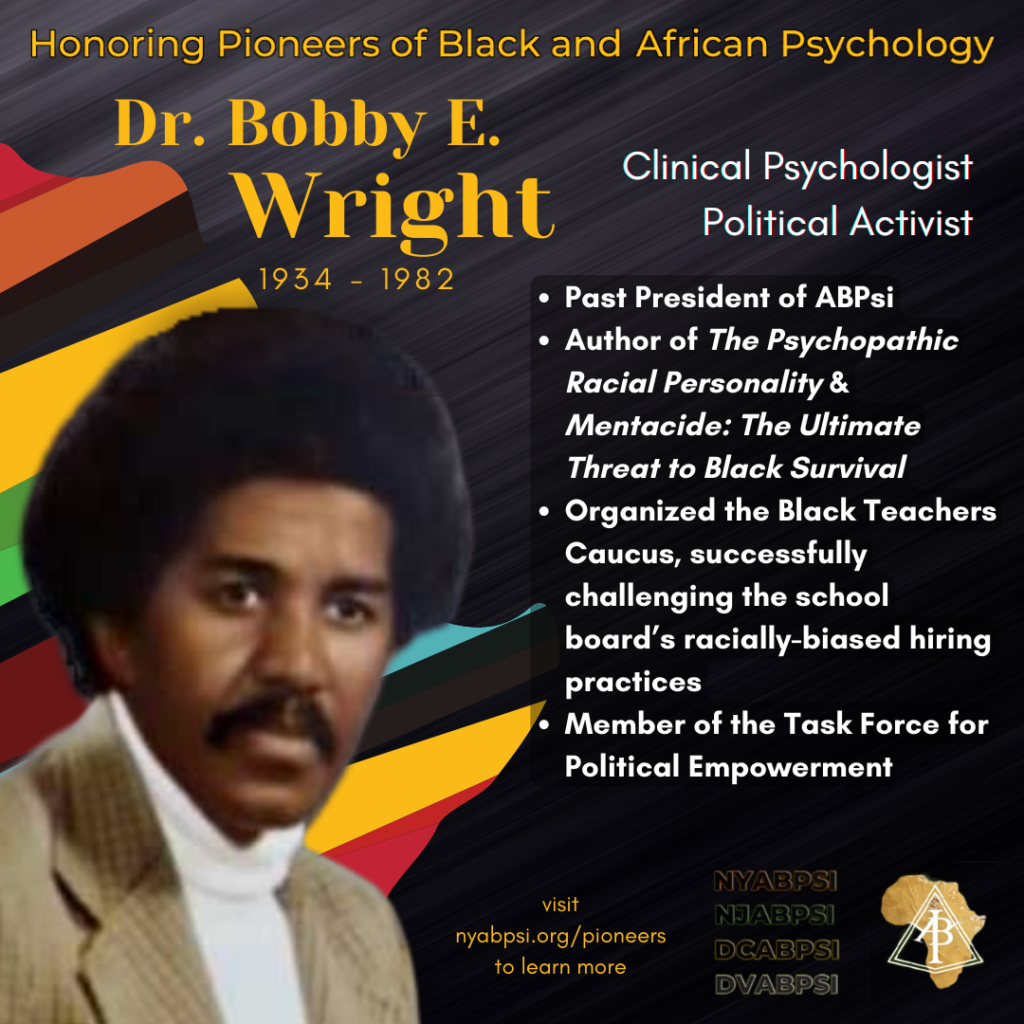
Bobby Eugene Wright, born in Anniston, Alabama, advocated for Black self-determination, community development, and the use of theory-based approaches to promote culturally-sensitive mental health care. He moved to Chicago in 1959 after serving in the U.S. Army. Dr. Wright earned his doctorate in clinical psychology from the University of Chicago in 1972.
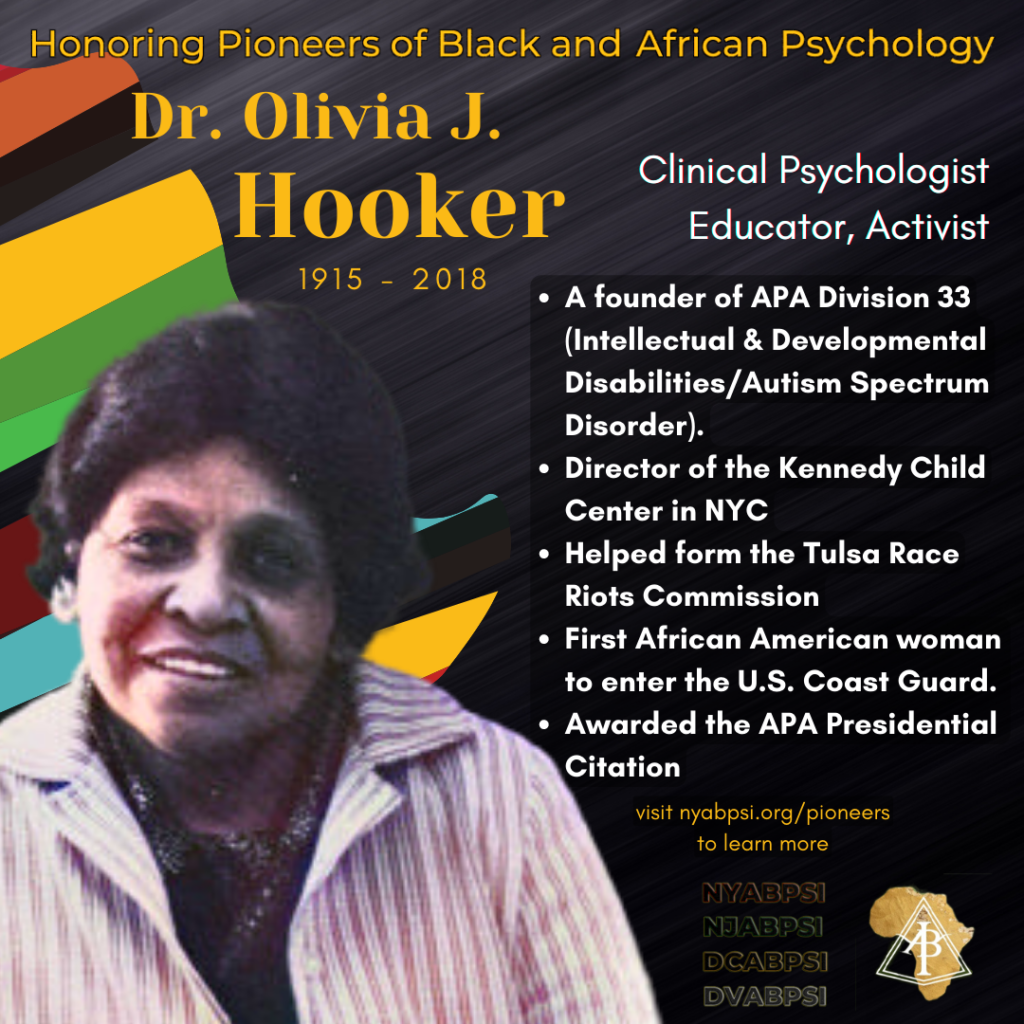
Olivia Hooker (1915-2018), one of the last survivors of the Tulsa race massacre of 1921, was a psychologist and professor at Fordham University whose clinical and research work advanced knowledge and understanding of developmental disabilities. In 1997, Dr. Hooker joined other Tulsa massacre survivors in launching a commission to study the event and secure reparations. President Barack Obama described her as a “a tireless voice for justice and equality.
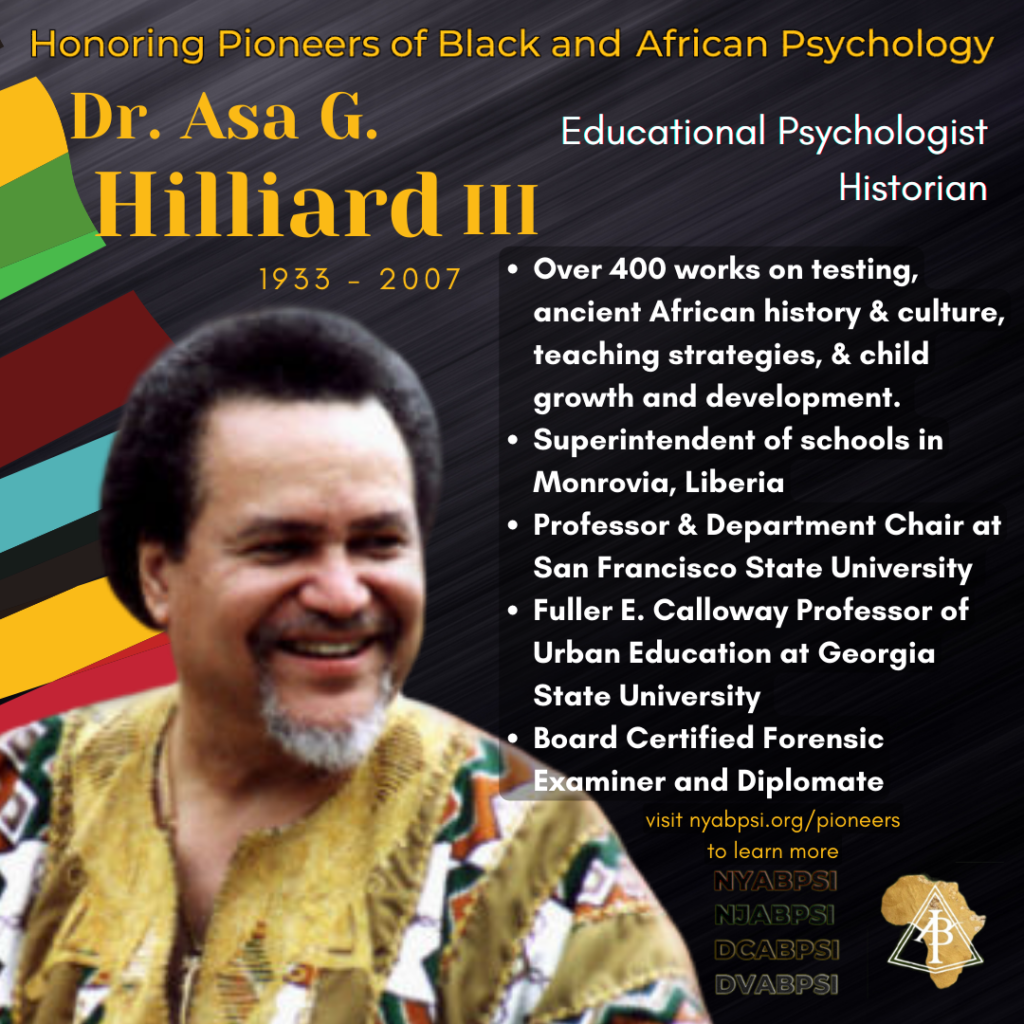
Dr. Asa Hilliard, also known as Nana Baffour Amankwatia II (which means “generous one.”), was born in Galveston Texas and transitioned in Cairo, Egypt while preparing to deliver a lecture to the annual conference of the Association for the Study of Classical African Civilization (ASCAC), an organization he helped found. He was a psychologist and educator who specialized in indigenous ancient African history, culture, education, and society.
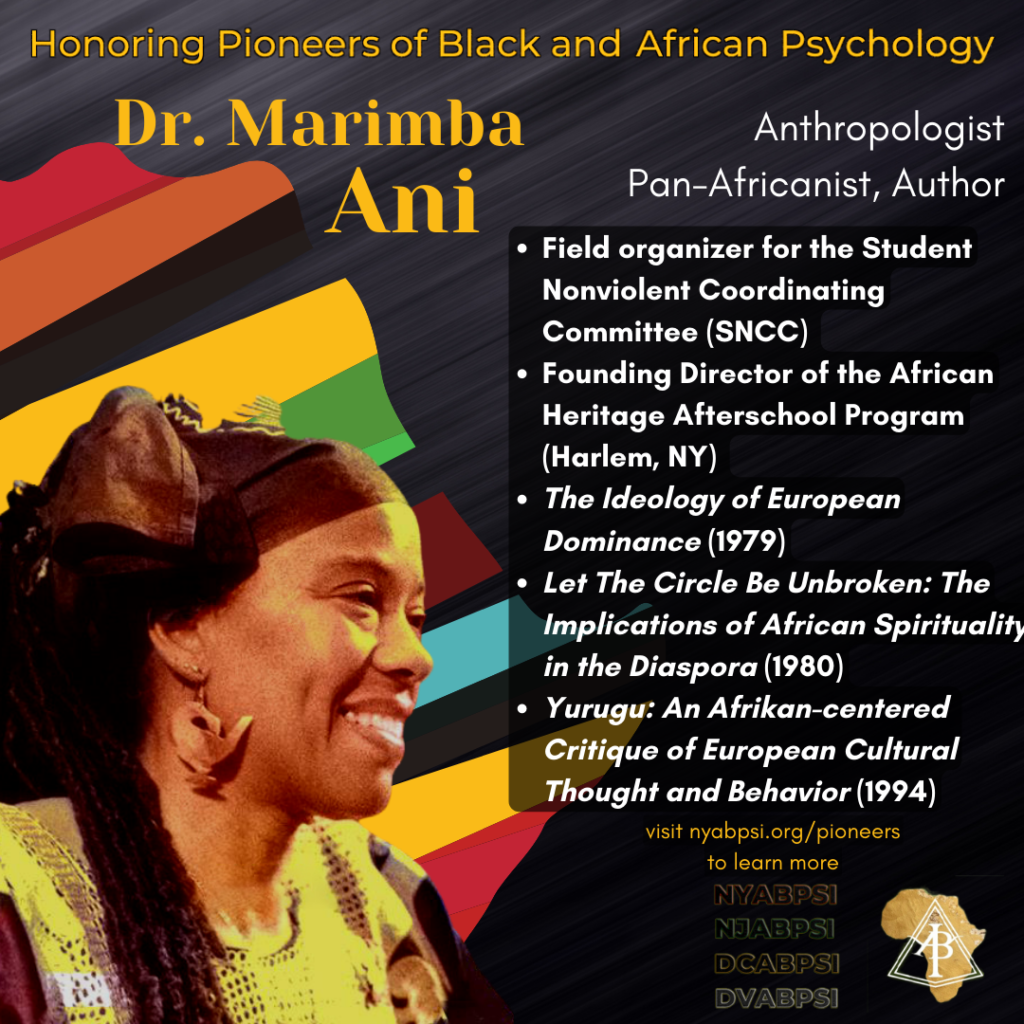
Dr. Marimba Ani is an anthropologist, Pan-Afrikan activist and organizer, and African Studies scholar best known for her work Yurugu, a comprehensive critique of European thought and culture, and her coining of the term “Maafa” for the African holocaust. She completed her BA degree at the University of Chicago and holds MA & Ph.D. degrees in anthropology from the Graduate Faculty of the New School University.
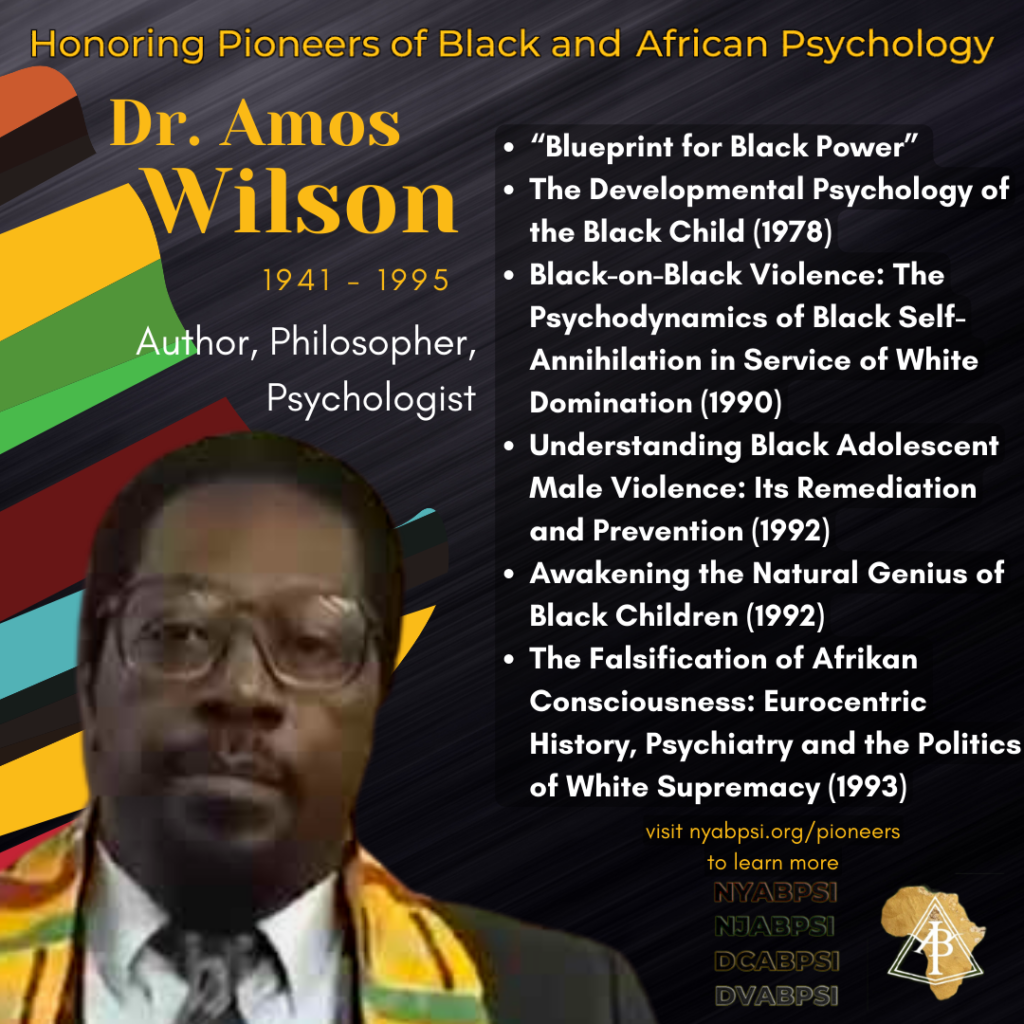
Dr. Amos Wilson (1941-1995), born in Hattiesburg, Mississippi, and educated at Morehouse College, migrated to New York where he attained his Ph.D. from Fordham University. He was a former social case worker, supervising probation officer, psychological counselor, training administrator in the New York City Department of Juvenile Justice and Assistant Professor of Psychology at the City University of New York. His knowledge and views on the predicament, struggles and needs of people of African descent led him to be one of the most influential scholars, authors, and speakers of all time.
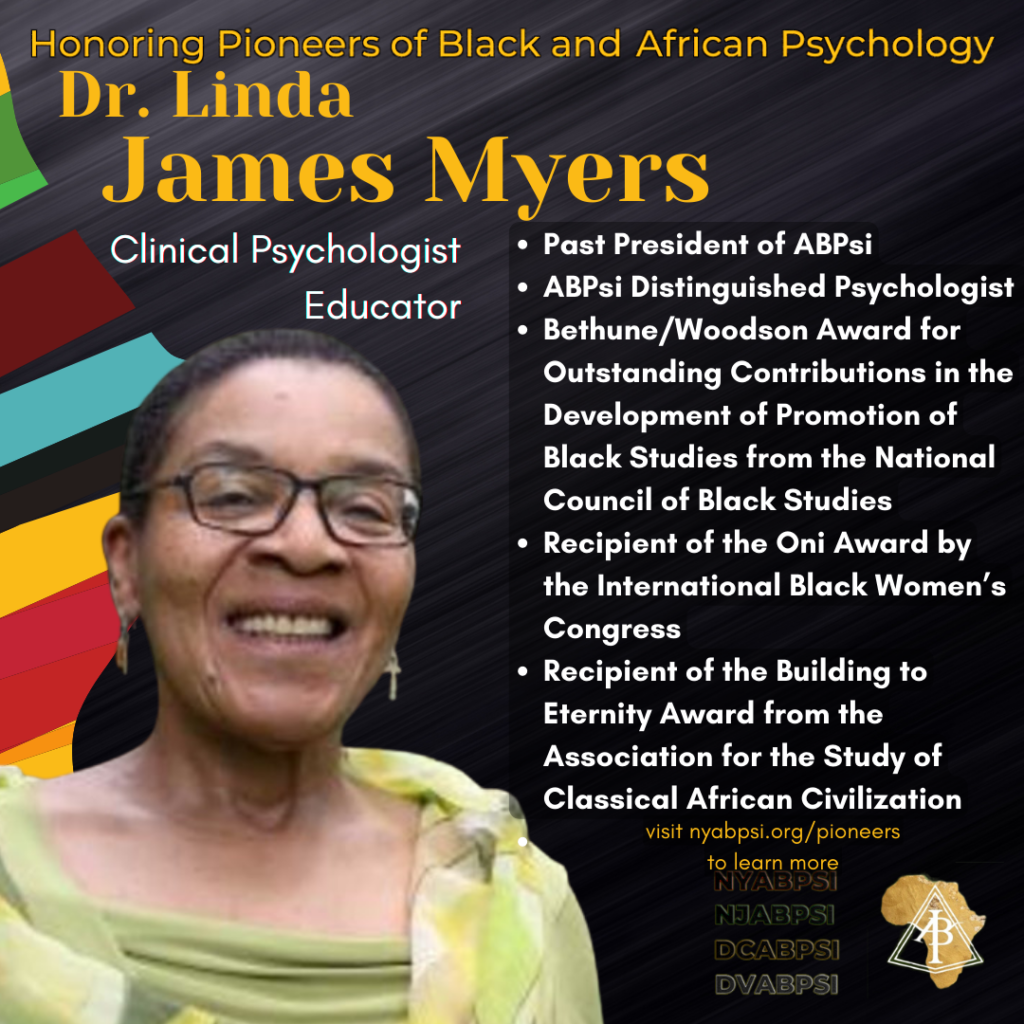
Dr. Linda James Myers earned her M.S. in school psychology from Kansas Teachers State Teachers College (Emporia State University), and her Ph.D. in clinical psychology from Ohio State University. She is known for her critique of traditional Western psychological frameworks, her research on African-centered psychology, and her theory of optimal psychology. She is currently a professor in Ohio State University’s Department of African American and African Studies.
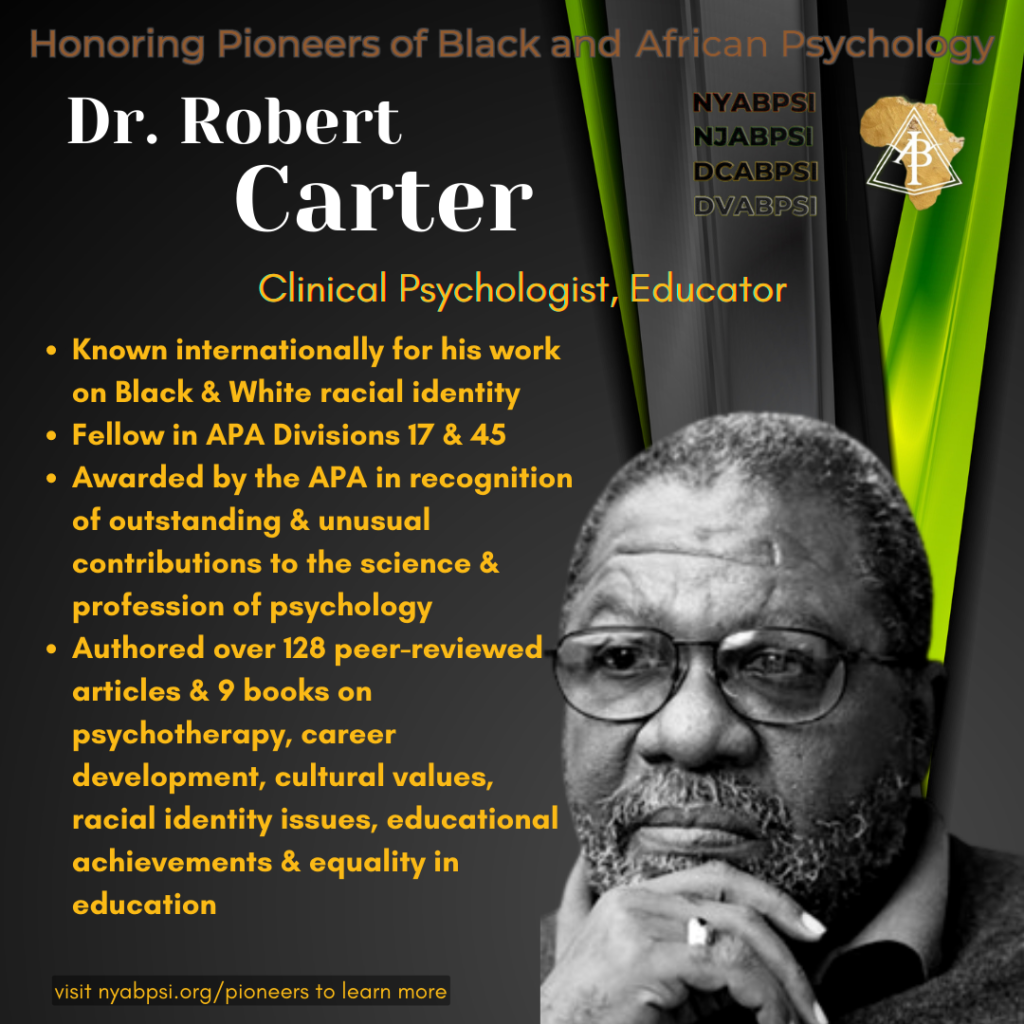
Dr. Robert Carter is a Professor Emeritus of Psychology and Education, Chair of the Department of Counseling and Clinical Psychology, and Director of training of the Counseling Psychology Program at Teachers College, Columbia University. He was born in New York City in the 1940s and obtained a GED before attending Malcolm-King College. He raised four children as a single father while earning his Ph.D. in Counseling Psychology at the University of Maryland.
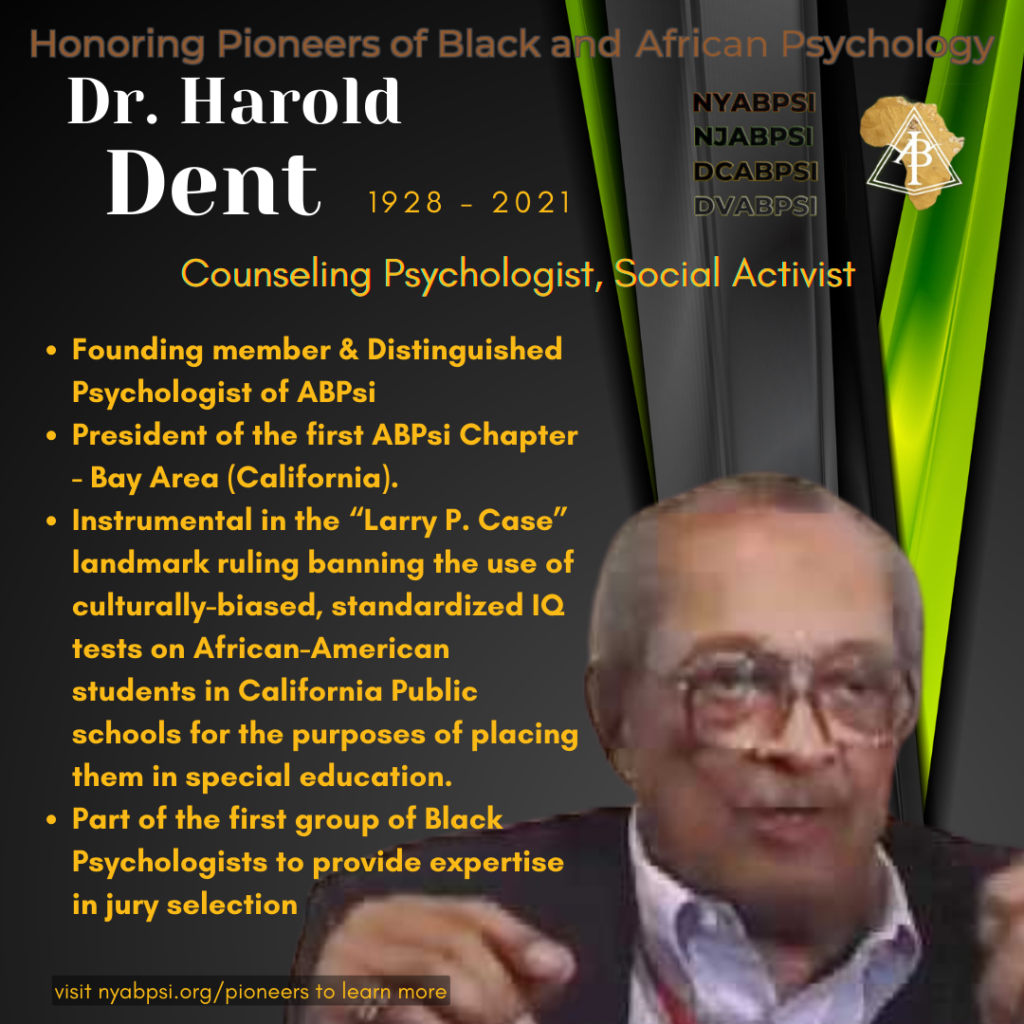
Dr. Harold Dent was born on August 4, 1928, in Southampton, NY. He earned his undergraduate degree in psychology from New York University and his master’s degree in clinical psychology from the University of Denver. He then received his Ph.D. in Clinical and Counseling Psychology from the University of Hawaii. He and his wife, Beverly Brown, raised twin daughters. Dr. Dent transitioned on November 20, 2021.
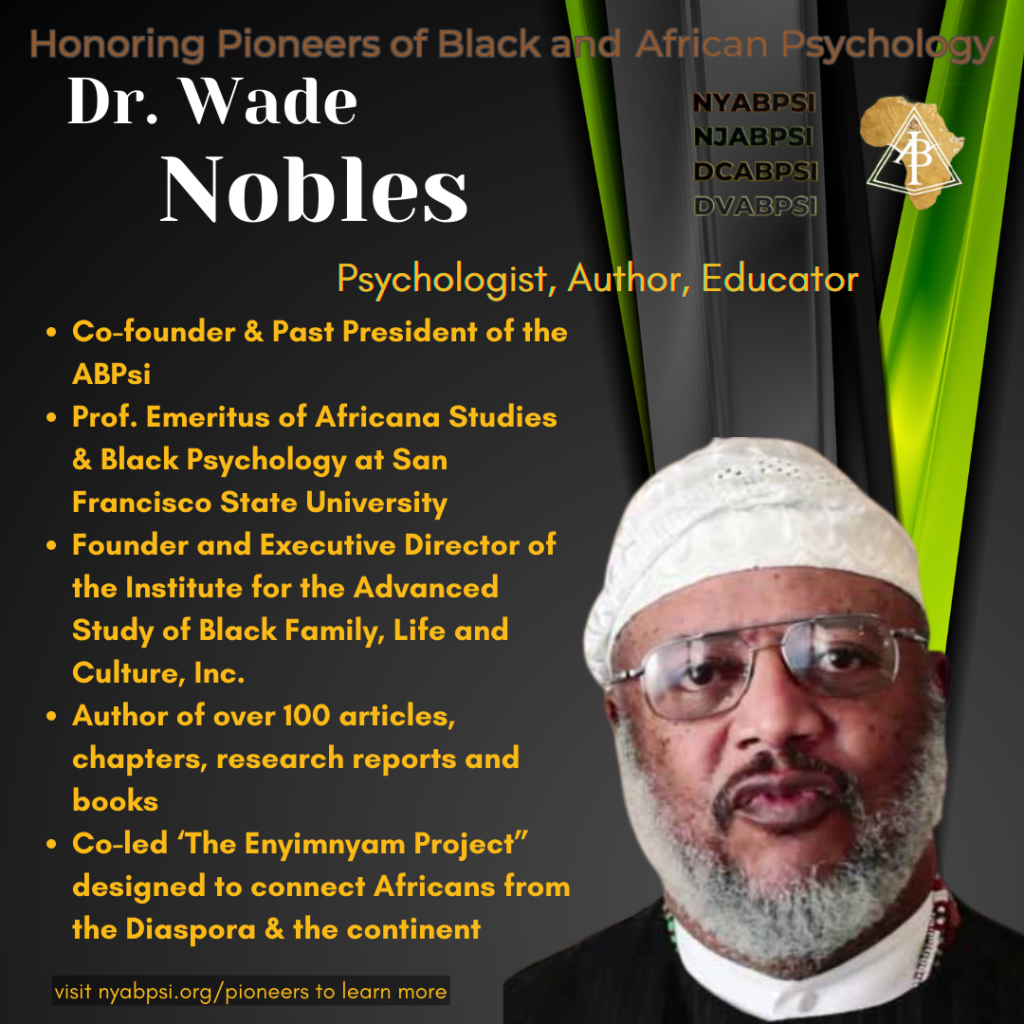
Dr. Wade Nobles is the son of Annie MaeCotton and John Nobles. He earned his Ph.D. in Psychology from Stanford University. He is married to Dr. Vera Lynn Winmilawe Nokwanda DeMoultrie. He has studied classical African philosophy (Kemet, Twa & Nubian) and traditional African wisdom traditions (Akan, Yoruba, Bantu, Wolof, Dogon, Fon, Lebou), all used for his groundbreaking development of an African (Black) Psychology.
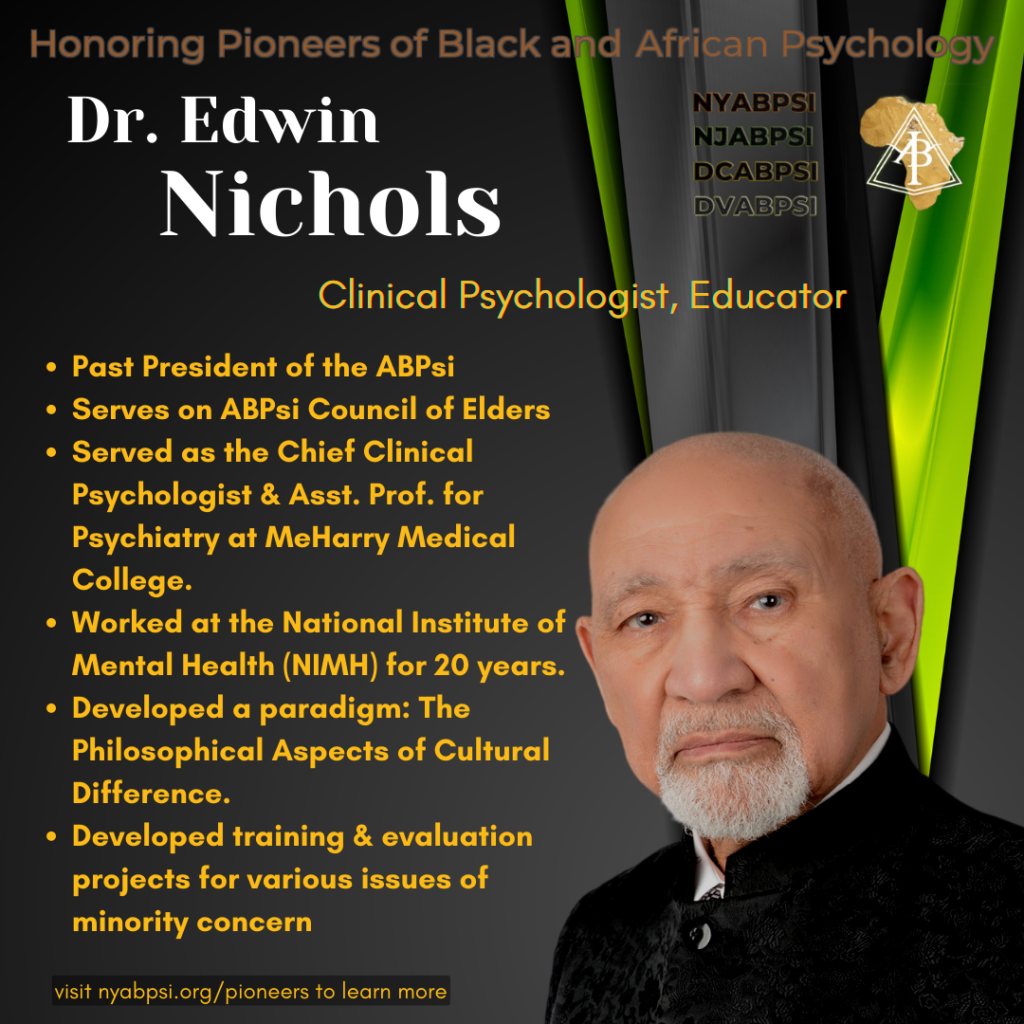
Dr. Nichols was born on June 23, 1931 in Detroit, Michigan. He served in the military during the Korean War. Over many years, he has developed training and evaluation projects for a wide variety of concerns, including seminars on institutional racism and other issues of minority concern; seminars on workplace issues confronting the LGBTQ community, and workshops to address sexual harassment and disparate treatment of women in the workplace. He currently lives in Washington DC.
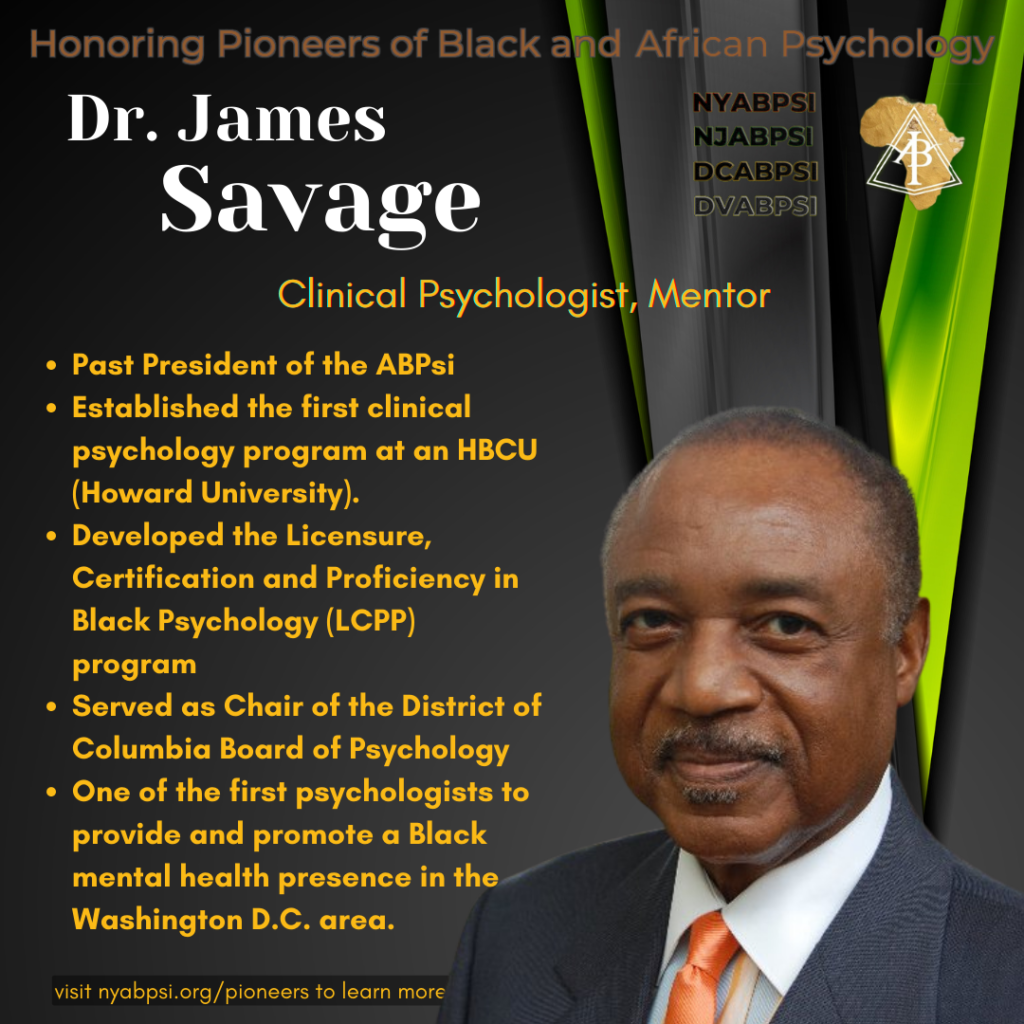
Dr. James Savage was born in Norfolk, Virginia. While President of ABPsi (2004-2005), Dr. Savage developed a program called Licensure, Certification and Proficiency in Black Psychology (LCPP). He currently serves on the Association of Black Psychologists Council of Past Presidents. In addition, He served in the U.S. Air Force for 3 ½ years. Dr. Savage currently lives in Maryland.
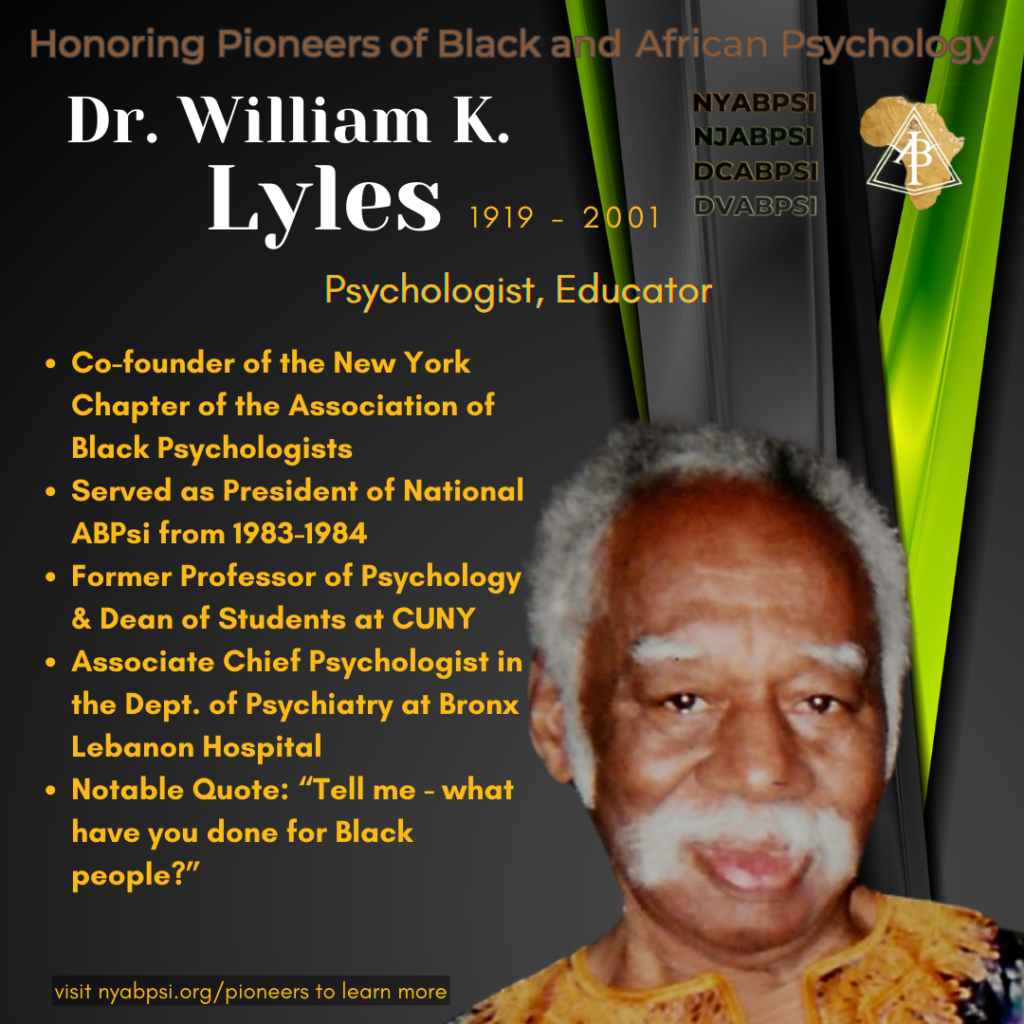
Dr. Lyles was a co-founder of the New York chapter of the Association of Black Psychologists and went on to serve as chapter President many times. He initiated the chapter’s Nelson Mandela award and has been named the chapter’s first and only President Emeritus. He was a strong supporter of students, mentoring many, and acting as Dean of Students at The City University of New York. He lived in Staten Island for many years and was father to son Don Lyles. He transitioned in 2001.
We want to learn from you too!
Did one of the pioneers above serve on your dissertation committee or teach a course you took?
Have you been influenced by their work or legacy?
Do you know of a pioneer in black and African psychology that we did not include?
Email Us
If you answer yes to any of the questions above or just want to share some info about a pioneer, please email nyabpsi1@yahoo.com and let us know!
